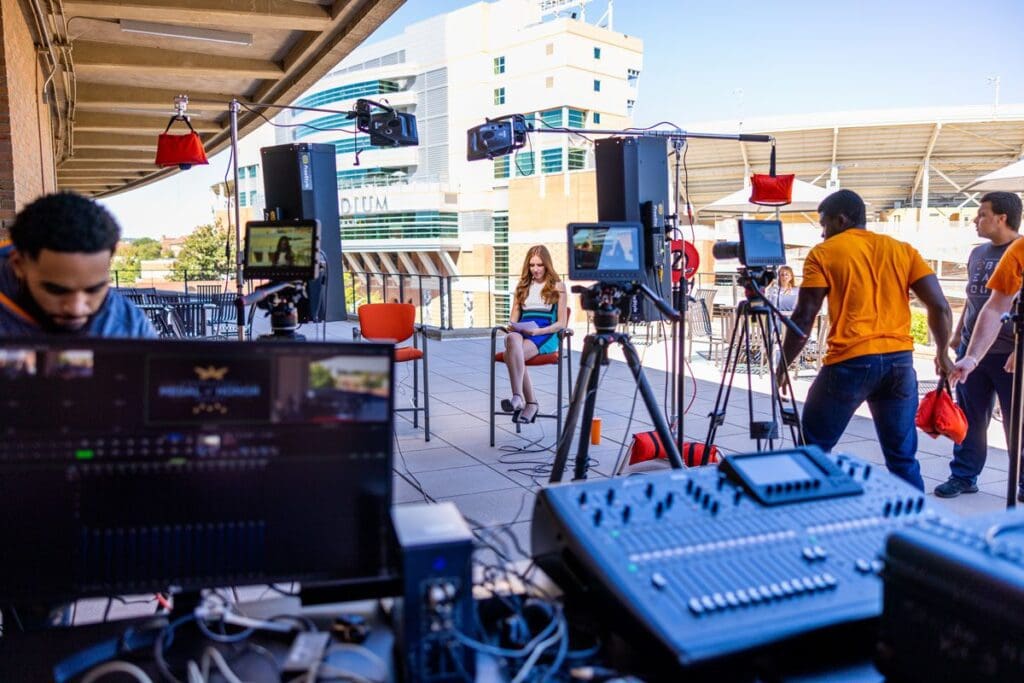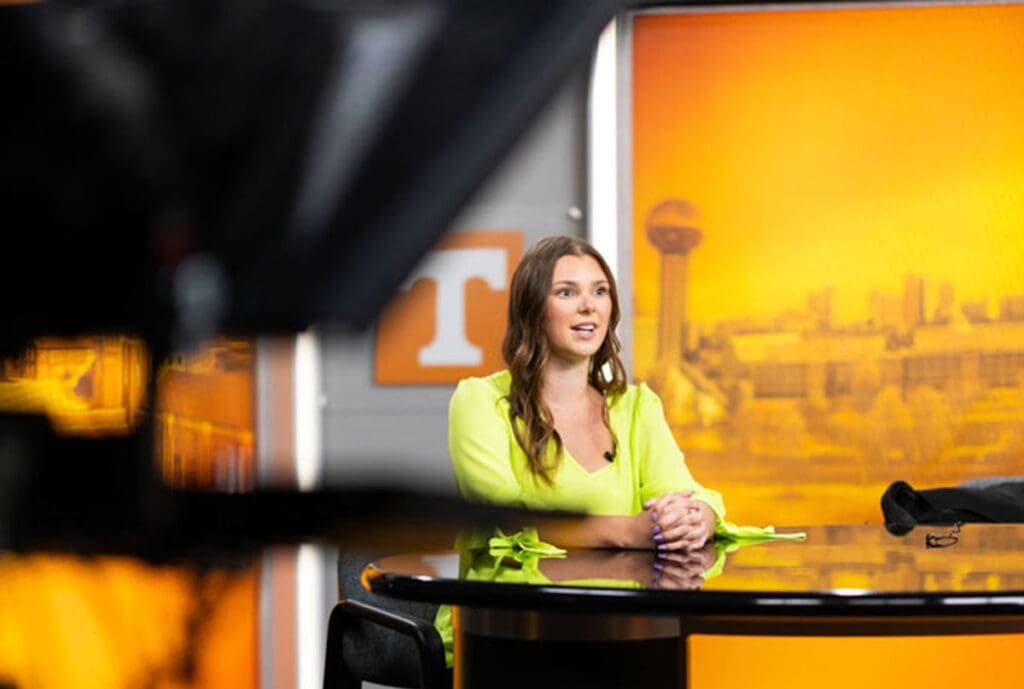
Be a Leader in Journalism and Media
Are you driven to impact communities, industries, and nations through media? We provide you the skills to achieve your goals, whether it is broadcasting the news, sports reporting, science writing, or recording innovative podcasts. There’s no shortage of opportunities to discover your passion when you find your home at the School of Journalism and Media.
Concentrations
Journalism and media are fast-changing and our school stays on top of cutting-edge trends by creating concentrations that will ensure your success in the field. Students are encouraged to prepare for future careers by choosing a path that best suits their goals and career interests.

News
This concentration is designed for students interested in becoming news writers, reporters, anchors, editors, producers, or news directors for a variety of news media, including newspapers, magazines, television, radio, and online news sites.

Sports Communication
This concentration is designed for students interested in sports writing, reporting, programming, on-air talent, and production. The School of Journalism and Media maintains relationships with major sports media companies that offer excellent opportunities to our students.

Creative Media
This concentration is designed for students interested in creative writing, producing, and directing for the entertainment world, including for television broadcasting and digital media. The School of Journalism and Media maintains relationships with major entertainment media companies that offer excellent opportunities to our students.
Hands On From Day One

The 4+1 Master’s Concentration
Earn a bachelor’s and master’s degree in five years
The Journalism and Media 4+1 concentration allows students who graduated with a Bachelor of Science in Communication majoring in journalism and media from the University of Tennessee (within the last three years) to earn a master’s degree with a fifth year of graduate coursework (30 additional graduate credit hours). The concentration is designed to help students gain a deeper understanding of the skills they focused on during their undergraduate studies while gaining knowledge in other areas of the journalism and media degree.
Courses
More details about the Journalism and Media concentrations and courses can be found in the 2025-2026 Catalog.
